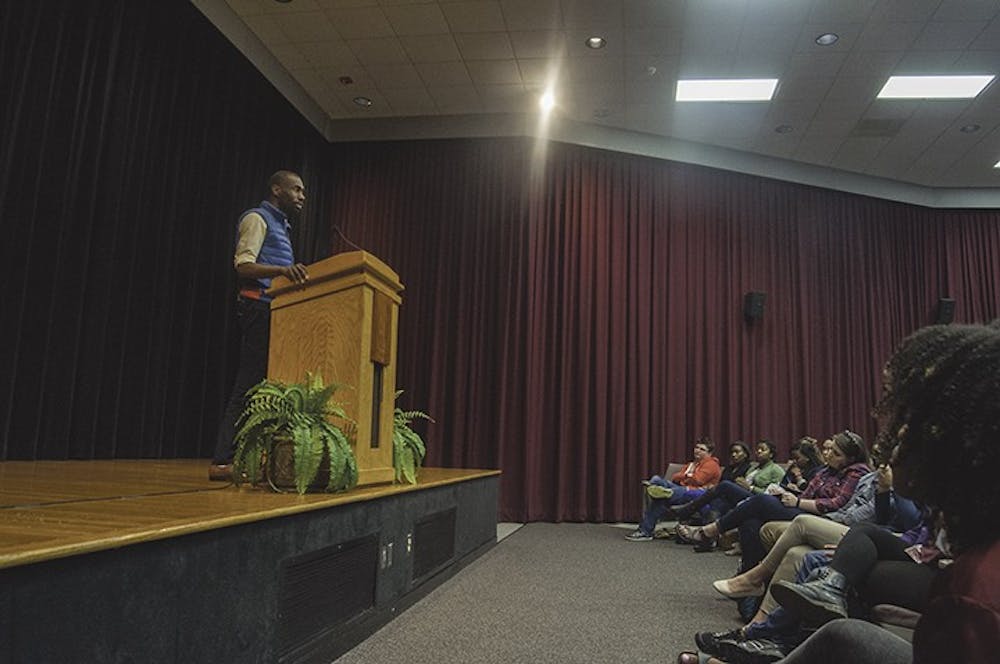At the peak of Social Justice Month, educator and activist DeRay McKesson advocated for hope, equity and truth to an audience in Russell House Theater Monday evening.
McKesson, an advocate for social justice, is running for mayor of Baltimore, Maryland, but takes his message to cities throughout the U.S. He began with the story of his time in St. Louis, Missouri, during the protests following the shooting of Michael Brown.
When McKesson was in St. Louis, the police tear-gassed the group of protesters with which he was standing.
“In that moment, I became a protester,” McKesson said. “The world can’t be like this for people, that this isn’t fair, this isn’t right.”
McKesson touched on the idea of publicizing social injustices. He describes himself as a "Twitter evangelist," utilizing his presence on social media to make his conversation public. He asserts that while issues such as racial tension and police brutality are not new, the ability to talk about them publicly is.
“I will never criticize people who use social media to tell the truth because so much of this work has been telling the truth in public,” McKesson said. “And in the same way that I understand that we weren’t born woke, that something woke us up, that the truth is what brings people to the work.”
McKesson also voiced the notion that acknowledging injustice is only a fraction of the work toward eradicating it. While public conversation is necessary, it is only the beginning. According to McKesson, awareness is an essential step toward solution, but it doesn't solve the problem.
“Talking about the trans community in public does not mean that we have created an inclusive community," he said. "Talking about police violence in public does not mean that we have ended the trauma, right? ... It does mean that we have opened up space so we can work on the problem."
A commitment to the truth is ultimately what drives McKesson’s message and challenges. He believes that the willingness to tell the truth under any given circumstances is the start of effective social activism.
He closed his address with the idea that awareness and truth are the cornerstones of effective social activism.
“It’s a test of, ‘Are you willing to tell the truth with your body, with your mind, with your words?’” McKesson said. “And the first step is so real, and that often is a precursor for how you will enter the work for the rest of your life.”
McKesson’s speech resonated with his audience, particularly with Lizzie Keegan, a campus minister with InterVarsity Christian Fellowship.
“The thing that stood out to me the most was when he described why he does the work is because he has a picture of a desired future ... I realized that is where white privilege will always stop people from caring; it’s because they already have the desired future,” Keegan said. “Until you understand that you don't have the desired future, you’ll never do the work.”
McKesson’s speech also invoked a response from third-year history and anthropology student Hunter Johnson.
“You hear so much about, ‘We need to all have equality, we need to all have diversity, if we don’t, the world is going to go to hell in a handbasket.’ Then [McKesson’s] just like, ‘No, it’s not about everybody having everything. It’s about everybody having what they deserve,” Johnson said.
McKesson encouraged the audience to ask themselves how far they will go in their commitment to truth-telling as it relates to activism and justice, asking them, “What truths are you allowing to be told in the spaces you’re in as you call yourself somebody who is fighting?”

